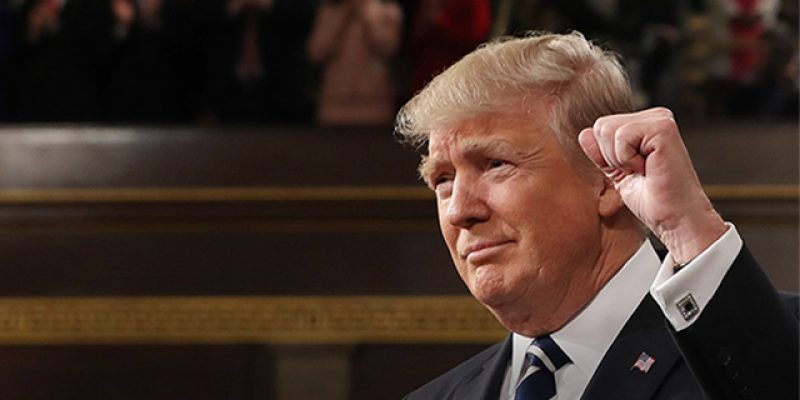“Have you seen what’s going on in front of Congress? Fifth Amendment, Fifth Amendment, Fifth Amendment. Horrible. Horrible, and will anything happen? That’s going to be the question, we’ll find out.”
– Donald Trump, on the campaign trail
News that former FBI Director James Comey will testify before a Senate committee next Thursday has naturally drawn interest. Based on information released first by President Donald Trump, the two had a private dinner last winter. According to a Comey memo, the president asked him to drop an investigation into Gen. Michael Flynn, then National Security Adviser, who was under probe for withholding information about ties to and interactions with Russian officials during the campaign and transition.
According to POTUS, in a now-infamous interview, Comey also assured the president himself that he was not under federal investigation. Comey apparently made no commitment regarding the Flynn matter.
After Flynn was fired and, subsequently, after Comey was fired unceremoniously – finding out he had been terminated while in the middle of a speech in California – POTUS tweeted that Comey should be sure there are no recordings of their meetings before talking to the press.
The intentional implication is clear: The President of the United States was surreptitiously recording conversations. Alternatively, he wasn’t doing that but was clearly implying that he had, issuing a thinly veiled threat against Comey. If the president did record the meetings, the tapes are discoverable; if he didn’t, the implicit threat is telling: We have a president who wields the power of his office to intimidate, threaten, and silence his enemies – although whether Comey was an enemy at that point is questionable.
Now, Comey has agreed to testify, and the question turns to whether the White House will invoke “executive privilege” to silence him. Since he is no longer a federal employee, the president cannot compel him to remain silent – unless he can prove that such conversations were privileged by virtue of national security issues that had been discussed. Moreover, if special investigator and former FBI Chief Robert Mueller considers Comey’s testimony to be relevant to a criminal investigation, Mueller himself could prevent it.
All exceptions are unlikely – and ill-advised.
Invoking executive privilege in this matter is tantamount to invoking the Fifth Amendment – a step that implies guilt.
Proving the conversations were based on national security would be impossible, lest the secure information itself be disclosed. In that vein, too, the idea of this administration basing privilege on secrecy is almost laughable at this point, given the obvious favoritism to Russia, the overt disclosure of British investigative information following the Manchester terror attack two weeks ago, and the First Family’s flagrant fondness for all things Soviet over the interests of the European Union and allies elsewhere.
Finally, Mueller can’t possibly assert that Comey has information relevant to a criminal investigation, given his short time in the position he now holds – an unenviable one, to say the least.
All that said, the President should make no effort to prevent Comey from testifying before whatever subpoena-ing authority calls him. Responsible and attentive readers could reasonably agree with my assertion that Mr. Comey cares deeply about our country and our national security. Similarly, responsible and attentive adults could reasonably question our president’s patriotism.
Do I believe President Trump loves America? Yes. Do I believe President Trump is predisposed to favor Russia over other allies? Yes, and his predecessor did, as well, albeit to a lesser extent; playing footsie with the Kremlin, however, is no proof of wrongdoing. Do I think POTUS has committed treason or other impeachable offenses? No, not at all. But have the early members of his administration? It’s easy to wonder.
In his own interests and in the interests of the nation, the president should not invoke executive privilege in this matter. To do so will cast a deeper shadow on an already weak administration. Let James Comey say what he will, and what he must. Move forward from there. Suppressing congressional subpoenas and trying to silence enemies will only feed the opposition and those in media bent on destroying this presidency as it barely begins.
Be silent, Sir. For a change. Take no action, legally or on Twitter. Let the chips fall where they may. To intervene is to imply guilt. Unless you are guilty, there’s no advantage in it.
Advertisement
Advertisement

